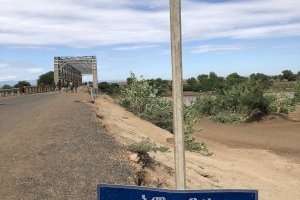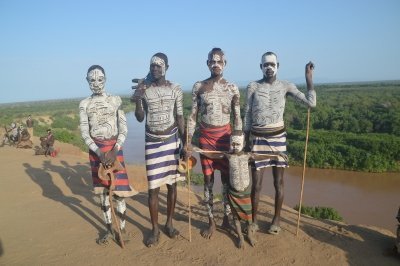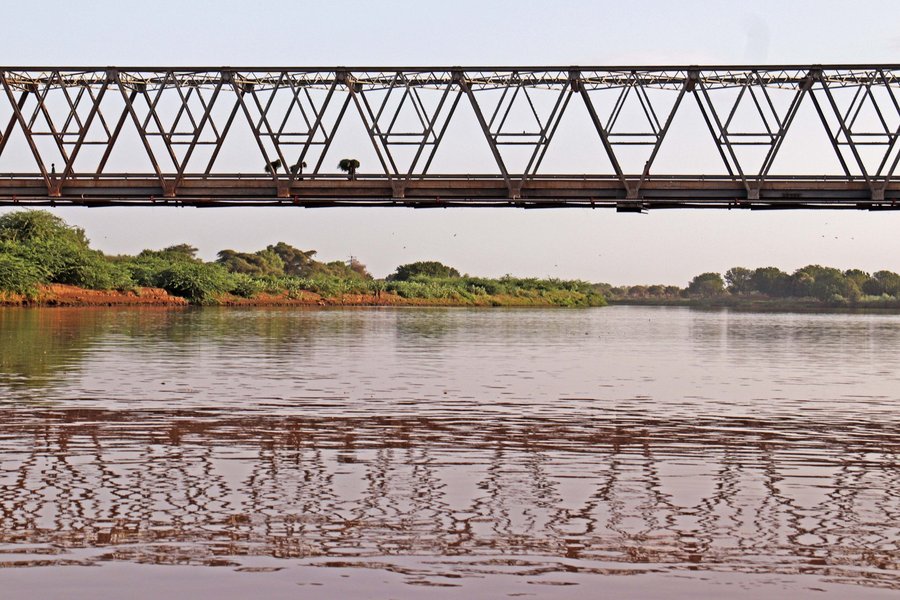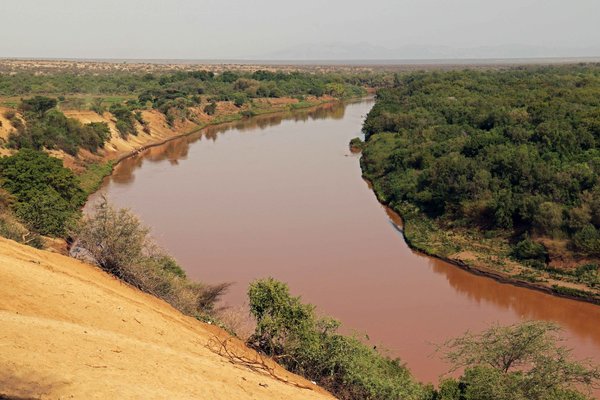Ethiopia
Lower Valley of the Omo
The Lower Valley of the Omo is a prehistoric site where many hominid fossils have been found that contribute to the study of human evolution.
They were located in up to 3.5 million-year-old sedimentary deposits. Fossils belonging to the genera Australopithecus and Homo sapiens have been found at several archaeological sites, as well as tools made from quartzite, the oldest of which date back to about 2.4 million years ago.
Community Perspective: there never has been an official map that shows the inscribed area, so ‘visiting’ this site is problematic. The more so because its OUV lies with the hominid remains and people mostly go to the Omo region to see its contemporary tribes, as is reflected in the reviews below.
Site Info
Official Information
- Full Name
- Lower Valley of the Omo (ID: 17)
- Country
- Ethiopia
- Status
-
Inscribed 1980
Site history
History of Lower Valley of the Omo
- 1980: Inscribed
- Inscribed
- 1979: Deferred
- Bureau meeting - info requested in 78 still not in place
- 1978: Deferred
- Bureau meeting - info requested
- Type
- Cultural
- Criteria
- iii
- iv
Links
- UNESCO
- whc.unesco.org
- Official
-
- visitethiopia.travel — Visit Ethiopia Lower Omo Valley
- Related
-
- worldheritagesite.org — The site has been lacking a map, proper boundaries and buffer zone since inscription. Ethiopia is working on it, but as recently as 2022 has not submitted it.You can view the proposed area at this link
All Links
UNESCO.org
- whc.unesco.org — whc.unesco.org/
Official Website
- visitethiopia.travel — Visit Ethiopia Lower Omo Valley
Related Resources
- worldheritagesite.org — The site has been lacking a map, proper boundaries and buffer zone since inscription. Ethiopia is working on it, but as recently as 2022 has not submitted it.You can view the proposed area at this link
Community Information
- Community Category
- Paleontology: Human evolution
Travel Information
Recent Connections
-
No Map
-
Misleading WHS Names
The geographical scope is unclear due t… -
Fossils
"have produced numerous hominid and ani…
Connections of Lower Valley of the Omo
- Individual People
-
-
Leakey Family
Richard Leakey was invited by Haile Selassie to search for fossils there (1967).
-
- History
-
-
Early Hominid Remains
"discovery of the earliest known fossil fragments of Homo Sapiens that have been dated circa 195,000 years old."
-
- Ecology
- Damaged
-
-
'Threatened' by Dams
Gibe III Dam under construction on the Omo River
-
- World Heritage Process
-
-
Inscribed at third attempt or more
Def 1978, Def 1979, Ins 1980 -
No Map
-
- Timeline
-
-
Middle Pleistocene
The oldest hominid remains are 200,000 years old (Ionian). -
Pliocene
The oldest sediments are 3.5 Million years old (Pliocene).
-
- WHS Names
-
-
Named after a River
Omo -
Misleading WHS Names
The geographical scope is unclear due to lack of official map, and site is cultural while natural is implied by focus on the Valley. Suggestion for an alternative name: ‘Hominid fossil sites in the Lower Omo Valley’.
-
News
No news.
Recent Visitors
Visitors of Lower Valley of the Omo
- Alexander Barabanov
- Ali Zingstra
- amychemu
- Ana Lozano
- Atila Ege
- Bamse
- Boj
- David Marton
- Eva Kisgyorgy
- Fan Yibo
- Gernot
- Harry Mitsidis
- Jarek Pokrzywnicki
- John Smaranda
- KarenBMoore
- La Concy
- Loic Pedras
- Luis Filipe Gaspar
- Marcobrey
- Martin
- Michael Novins
- Morodhi
- Nihal Ege
- Philipp Leu
- Pieter Dijkshoorn
- Piotr Wasil
- Randi Thomsen
- Solivagant
- Svein Elias
- Szucs Tamas
- Thomas Buechler
- tony0001
- Weecheng
- Westwards
- Wojciech Fedoruk
Community Reviews
Show full reviews
Visited first week of January 2023.
Before arranging this visit, I consulted a number of tour operators, checked blogs, travel tips to figure out how to arrive at the "supposed" core/heritage zone of the property. I managed to reach Omorate, the southernmost point (of my trip) in the area, where I visited Dassanech village and attempted to walk further west, hoping to at least get a glimpse of those mysterious land formations.
Did I manage to visit the property? 50/50 - perhaps in the future, a more definitive map defining core & buffer zones will decide whether I (and many other travelers) did manage to tick off the site. Did I have fun visiting the area? Very much so. The visit to the villages (Karo, Morsi, Hamer and Konso) is the highlight of travel to Ethiopia's southern region.
Keep reading 0 comments
In December 2018, I visited the Omo Valley in far southwestern Ethiopia, including the Hamar people (known for their bull-jumping ceremonies and where the women curl and color their hair with ochre clay and butter), Daasanach people (the most southernly of the tribes who live in Ethiopia’s Omo Valley, where I attended a Dimi ceremony), Karo people (known for painting their faces and bodies with white chalk, red ochre, yellow mineral rock and black charcoal) and Mursi people (known for the lip plates and outrageous headdresses worn mostly by elderly women). As best as I could tell, the Karo village that I visited sat above the lower valley of the Omo River. I arranged my tour with Fitsum Ashebir, the founder of Omo Valley Tours, one of the best guides with whom I have ever worked; instead of paying a per photo fee (as so many seem to do in the Omo Valley), Fitsum, who is well known by all the village chiefs, arranged for us to pay a flat fee that allowed unlimited photos and made for a much more pleasant experience than I understand was experienced by some friends who paid per camera photo (where the subjects counts camera clicks).
Keep reading 0 comments
A visit to the lower Omo valley is a visit to another world. The environment is harsh and wild but the people are welcoming. When I first visited there was no electricity, no telephone and only rudimentary facilities for visitors. Now that is all changing and it is firmly on the tourist trail. That does not detract from the region's beauty and it is still an incredible privilege to spend time there. But the arrival of the television (albeit powered from unpredictable and noisy generators) will mean that the sense of otherness that both the tribes and tourists experience when coming face to face with each other will quickly disappear.
Keep reading 0 comments
“Lower Valley of the Omo” is the only WHS I know of inscribed for reason A (In this case as a site of early hominid remains), but visited almost entirely for reason B (In this case to see the remarkable tribes of the region). The problem this creates in determining whether one has actually visited the “site” is increased because the site’s inscription details are remarkably thin about its location - the “Lower Valley of the Omo” covers a very large area! Yet the 1980 evaluation is a simple 1.5 page document in English and French which merely states “Location – The Region of Gemu Gofa” - no “buffer zones” or “management plans here”! (This was very typical of early inscriptions - the ICOMOS evaluation for Harer in 2006 was 16 pages long and also has a 74mb “Nomination file” for consultation!).
The current UNESCO Web site does provide a grid reference (N4 48 E35 58) which I traced to the “town” of Kelem west of the Omo River just north of Lake Turkana. Now Wikipedia states “Omorate (also known as Kelem) is a village in Southern Ethiopia”. But could such a single location constitute the entire site of the “Lower Omo Valley”?
In fact Hominid finds have been made across a large area of the valley. The ICOMOS report itself justifies the inscription by referring to research carried out in the 30’s by Camille Arambourg and in the 60’s and 70’s by others unnamed – but where …
Keep reading 0 comments
